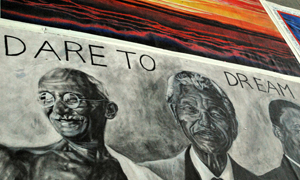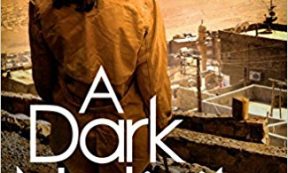I write this in the bay window of the clubroom of Jericho Chambers, overlooking Charterhouse Square, in one of the gentler backwaters of east-central London. Outside, schoolchildren are playing in the Square. I think the small park they’re in is laid out over a medieval plague-pit, but they’re not to know what corruption and putrefaction lies not far below the surface of the City.
They’re laughing and jumping about for joy, but in some respects the future looks bleak for them – not least economically. My generation, the post-war baby boomers, may have had less happy schooldays than this lot, but we ran off with their prosperity. Maybe it was those schooldays of ours, under the cane of the wounded and disordered war generation, which embittered us into the pursuit of selfish gain.
Just down the road from here is the heart of the financial district which asset-stripped those children I’m watching. With the compliance of politicians of all stripes, it was this metropolitan elite that created a market for homes that they won’t be able to afford to live in, a dearth of jobs for them to work in, a further education which will put them in debt, public services which they can’t use because we sold them, underfunded transport systems on which they can’t escape and everywhere the ugly, brutalised structures which stand as monuments to the post-modern, individualistic dystopia.
But it doesn’t have to be like this. Capitalism hasn’t always been like this. To be sure, the Victorians put children up chimneys and down mines, but they also gave us mutuality, social obligation and the strength of character to ask who our wealth should enrich. For a glorious high summer in the second half of the twentieth century we almost had a free-market economy which held on to that way of working, but without Gin Lane and rickets.
Then came the triumph of the individual in consumer markets. Politicians printed free money. Business became global so had nowhere to call home, let alone community. Essentials became commoditised and we bought them once from the state and again from the new carpetbaggers who now ran them. Financiers sold us pensions that didn’t work and bankers sold us garbage we didn’t need.
But yet there’s hope. You might expect someone of faith to say that, of course. I guess in some ways I’m a millenarian. For me, there’s one authoritative and authentic voice that speaks down the ages, past powers and principalities that have morphed from the Roman Empire into global corporations, of loving your neighbour as yourself.
For others, it’s a sense that this state of affairs won’t do for other reasons, born of an impatience with a status quo that politicians and bankers and their hangers-on in public relations, advertising and leisure have a vested interest in maintaining. These people are the progressives of any generation, who earn their living – in every sense – by moving an economy on, turning it into something new, rather than whiling away a working life as a pimple on its bottom.
Some of these progressives have come together to make common cause at Jericho Chambers. I’m sitting opposite one of them right now in this bay window. I don’t know what he’s doing on his laptop, but I know it won’t be finding a way to commoditise junk mortgages or sell a holiday as a “lifestyle choice”. I know that he knows there’s a whole lot more to life than that.
We’re part of a movement, which is quite grand when you think about it. We say it doesn’t have to be like this. We can be better than this. There must be a better way of doing things.
I’m glad there are people who want to change the world a bit. It gives me a sure and certain hope that something new and amazing can emerge from our collective efforts.
Someone needs to do it, if not for ourselves then for the people who come after us, for whom there must be a better way than this. The children have gone indoors now, by the way. It looks like rain.





